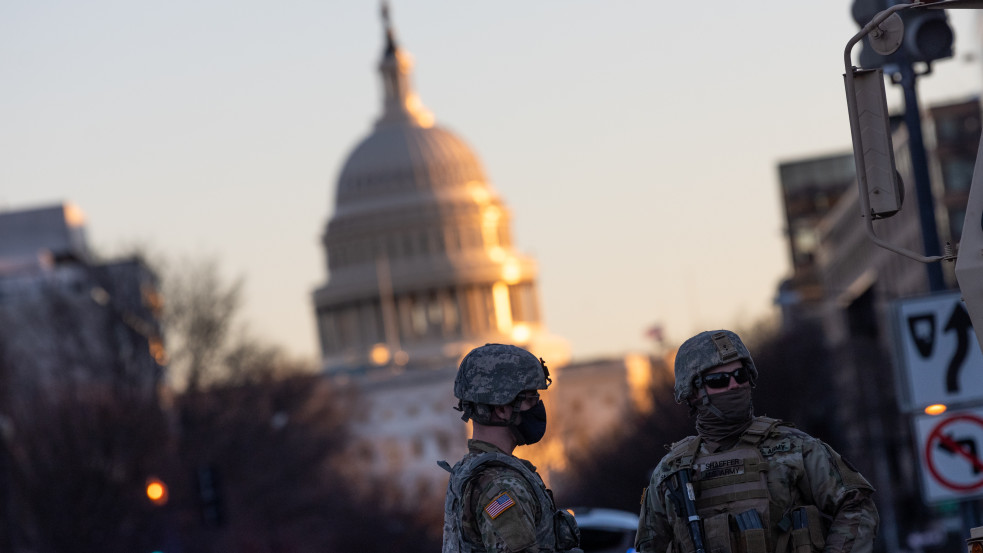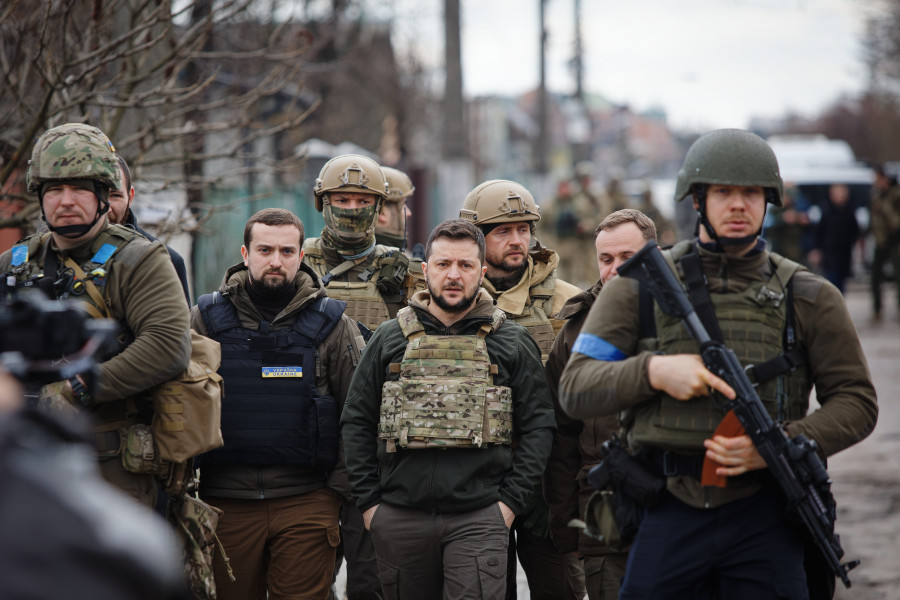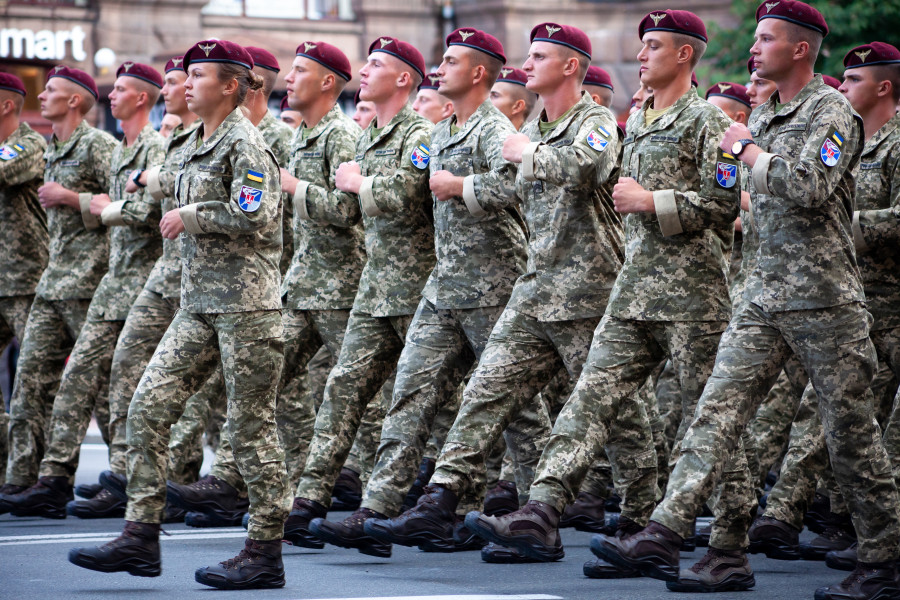
The war in Ukraine is the Waterloo of Western diplomacy, which started not now, but 15 years ago, with the Minsk agreement, and continued in 2014 with the putsch in Ukraine supported by the United States- according to security policy experts interviewed by Hetek. In this process, America lost the support of three-quarters of the world, but in return, it wishes to assert its dominance in the European region, especially in its eastern half.
"The United States and its European allies are the most responsible for the current crisis." - this statement was made not now, but 11 years ago, in 2014, by the world-renowned American political scientist John J. Mearsheimer, in which he predicted- or rather deduced as a logical conclusion- the Russian- Ukrainian war.
In his study The Failure of the West in the Ukraine Crisis, Mearsheimer explained that the United States and the West provoked the war in Ukraine by raising the prospect of Ukraine's NATO membership. According to the professor at the University of Chicago, the prevailing opinion in the West is that the crisis in Ukraine is caused almost exclusively by Russian aggression. “By this logic, the Russian President Vladimir Putin resorted to the annexation of Crimea in order to realize his cherished dream of resurrecting the Soviet empire, after which he could try to control all of Ukraine and the rest of Eastern Europe. According to the theory's apologists, the ouster of President Viktor Yanukovych in February 2014 was just an excuse for Putin, who ordered Russian troops to occupy part of the neighboring state." - writes Mearsheimer, who, however, believes that this is a wrong point of view and that the main cause of the conflict is NATO’s expansion to the East and the diversion of Ukraine from the Russian path, as well as its integration into the Western world.

Another important element of this strategy was the eastward expansion of the European Union and, since the Orange Revolution of 2004 and the Western support of the pro-democracy movement in Ukraine. Russian leaders have strongly opposed NATO expansion and have made it clear that they do not accept that their strategically important neighbor will become a bastion of the West. When the democratically elected and pro-Russian president of Ukraine was overthrown in 2014, Putin responded to the putsch by occupying Crimea, fearing that the peninsula would become a NATO naval base.
Since there was no change in this strategy even after 2014, it was necessary for the conflict to repeat itself, this time in the form of an open military confrontation. The timing was only delayed by the unexpected election of Donald Trump in 2016, but as soon as he was off the scene, key figures in the Biden regime, including the president's family, consciously pulled the strings, expecting Putin to make a move sooner or later.
This happened on 24th February, 2022, but in the year and a half of the war that has passed so far, despite appearances, the international balance of power has not changed for America's favor. While, thanks to the superior performance of the Ukrainian army and Western military- financial- intelligence support, it was possible to hold back the Russian army (which, however, still occupied a fifth of Ukraine), a significant reorganization took place in the global balance of power.
"President Zelenskiy had to notice at the NATO summit in Vilnius in June at the latest that the Western allies are not serious about the inclusion of Ukraine, no matter how much they talked about it before, especially the Baltic states and Poland."- said security policy expert József Horváth in an interview with Hetek. He reminded that during the meeting, the picture of President Zelensky standing alone, while the NATO leaders were cheerfully conversing with each other, has spread in the world press.
"I think that the media sent a message to President Zelensky, as it is obvious that the recording was made during a break in a meeting, and there were also hundreds of pictures of him shaking hands with someone, yet they started to spread this recording. This had a message valu.”- says the security policy expert.
According to Horváth, it was not by chance that the director general of the CIA said before the NATO summit that the American intelligence community is concentrating all its strength on China. "Russia is still there, but while the Russian-Ukrainian conflict is a bloody reality for us Europeans, for the United States, who see our planet as a global player, it is unfortunately only a secondary issue."
Security policy expert Robert C. Castel sees the dilemmas of American diplomacy in a similar way. "All signs point to China and Russia getting closer and closer, and it's practically our fault. During the Cold War, Zbigniew Brzezinski's theory was based on the possibility of a Western-Russian alliance against China. This is roughly what Kissinger was working on, but now it seems to be collapsing." According to Castel, the war is only the tip of the iceberg, and the Russian-Chinese relations are stronger than ever. "We can see that it was not the general secretary of the Chinese Communist Party who assigned Putin to him, but President Xi first went to visit Moscow, while the Americans have to travel to China to ask for something. There is a symbolic significance of who goes to whom."

One part of the war in Ukraine definitely affects countries outside the region, and that is the issue of grain deliveries. According to the official narrative, the blockade of Ukrainian grain- now announced by Russia- threatens the supply of hundreds of millions of people. In addition, the Russian army began to attack the Ukrainian ports along the Danube. In this regard, Bálint Somkuti, an analyst at the MCC Geopolitics Workshop, told our newspaper that although many UN member states condemned the Russian aggression, few were willing to implement sanctions against Russia.
"This includes the fact that the Western world behaved consistently, hypocritically, and duplicitously, while the Soviet Union and today Russia, have a kind of anti-globalist, anti-colonialist image that they try to recall and maintain.
It also includes the fact that a significant part of the grain entering the world market comes from Russia. Everyone produces for themselves, but what is freely available is largely provided by Russia to the world. In exchange for the smoothness of Ukrainian grain exports, Moscow requested that the Russian bank financing, the grain and fertilizer trade to be allowed back into the international payment system, which was promised to them earlier, but in the end they didn't get it."
According to Somkuti, by this, the West sent a message that punishing Russia is more important to it than keeping its own promises, not for the first time since the Minsk agreements. "This has repeatedly supported the Russian narrative that the West acts in bad faith, does not try to do business honestly and fairly, and does not try to treat the other party as an actual business partner- and not necessarily only Russians, but also third world or even Chinese parties- but only and exclusively looks at his own benefit. As a result, the Russians are deliberately and knowingly destroying the infrastructure through which Ukraine could take its wheat, and moreover, they cannot say without foundation that that wheat has not yet reached the third world."- added the analyst.
While the "non-Western" part of the world tries to loosen its dependence from America, Washington would increasingly strengthen its presence in Central and Eastern Europe. Referring to the Russian threat, the Biden administration voted with the Democratic-majority Senate for the budget framework for the development of bases in Eastern Europe, as well as a special security law, indicating that the Black Sea is currently considered a key region from a geostrategic point of view.
As part of this, the American missile defense systems installed in Romania and Poland also receive special attention and budget. In addition to the shield that has been operating since May 2016 in Deveselu in southern Romania, from the end of the year, the similar land- based ballistic missile defense facility Aegis Ashore in Poland will also be connected to the network. By the way, President Joe Biden requested a record $886 billion defense budget for next year. This is more than 100 billion more than this year's also record defense budget.
On 1st August, the United States introduced significant restrictions on the concessions of the current visa exemption program for holders of Hungarian passports.
In a statement, the embassy says that the two- year validity period offered to Hungarian citizens under the Electronic System for the Approval of Travel Authorization (ESTA) will be reduced to one year, and that Hungarians will only be allowed one visit in the ESTA system in the future, significantly tightening the conditions for entry.
Washington justified the unexpected decision by saying that Hungary had not eliminated the security risks to which America had drawn the Hungarian side's attention several times. Between 2011 and 2020, Hungary granted citizenship to around one million people- most of them Hungarian nationals living in neighboring states- without adequate security measures to verify their identity."- the statement said. They announced: as long as the Hungarian government does not eliminate the risks objected to by the US in the area of personal identification, the restrictions will remain in place.
In response to our inquiry, the Ministry of the Interior stated: "The United States of America demanded from Hungary the data of Hungarians abroad with dual citizenship, but Hungary does not release this information to anyone, because the safety of Hungarians abroad is at stake. That is why President Joe Biden's government is now taking revenge on the Hungarians."
An American conservative think tank, the Counterpoint Institute, also reacted to the news on Twitter: "Biden is allowing seven million people to cross the southern border unchecked. But it punishes NATO ally Hungary for not being sufficiently pro- war and pro- LGBTQ. This is a shameful game against a loyal ally, which has accepted one and a half million Ukrainian refugees."- the institute emphasized.
(Translated by Anett Harmath)